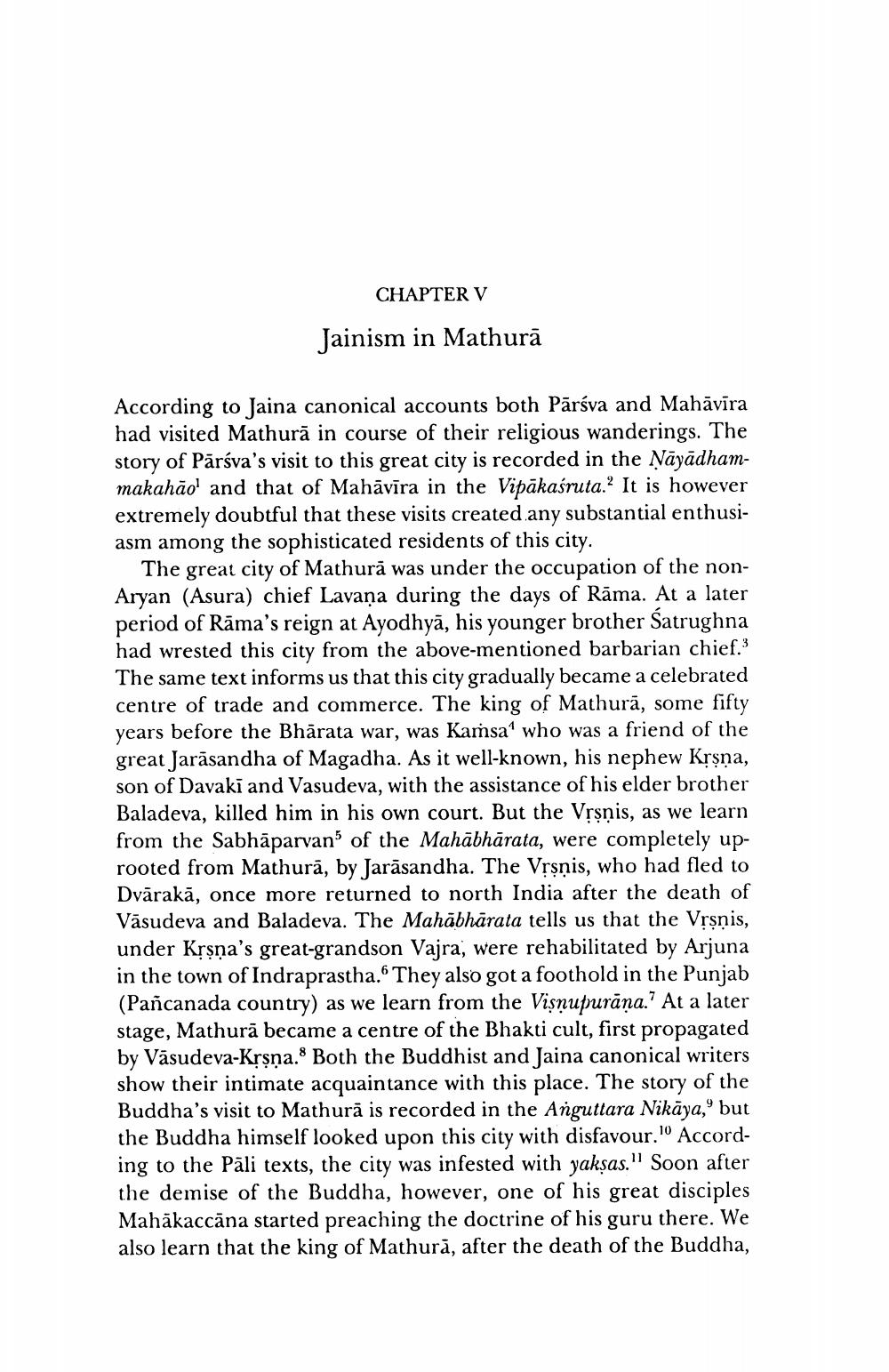________________
CHAPTER V
Jainism in Mathurā
According to Jaina canonical accounts both Pārśva and Mahāvīra had visited Mathurā in course of their religious wanderings. The story of Pārsva's visit to this great city is recorded in the Nāyādhammakahão' and that of Mahāvīra in the Vipākaśruta.” It is however extremely doubtful that these visits created any substantial enthusiasm among the sophisticated residents of this city.
The great city of Mathurā was under the occupation of the nonAryan (Asura) chief Lavaņa during the days of Rāma. At a later period of Rāma's reign at Ayodhyā, his younger brother Satrughna had wrested this city from the above-mentioned barbarian chief." The same text informs us that this city gradually became a celebrated centre of trade and commerce. The king of Mathurā, some fifty years before the Bhārata war, was Kamsa" who was a friend of the great Jarāsandha of Magadha. As it well-known, his nephew Krsna, son of Davaki and Vasudeva, with the assistance of his elder brother Baladeva, killed him in his own court. But the Vrsņis, as we learn from the Sabhāparvan of the Mahābhārata, were completely uprooted from Mathurā, by Jarāsandha. The Vrsnis, who had fled to Dvārakā, once more returned to north India after the death of Vāsudeva and Baladeva. The Mahābharata tells us that the Vrsnis, under Krşņa's great-grandson Vajra, were rehabilitated by Arjuna in the town of Indraprastha. They also got a foothold in the Punjab (Pañcanada country) as we learn from the Vişnupurāna.? At a later stage, Mathurā became a centre of the Bhakti cult, first propagated by Vasudeva-Krsna. Both the Buddhist and Jaina canonical writers show their intimate acquaintance with this place. The story of the Buddha's visit to Mathurā is recorded in the Anguttara Nikāya,' but the Buddha himself looked upon this city with disfavour. According to the Pāli texts, the city was infested with yakşas." Soon after the demise of the Buddha, however, one of his great disciples Mahākaccāna started preaching the doctrine of his guru there. We also learn that the king of Mathura, after the death of the Buddha,




